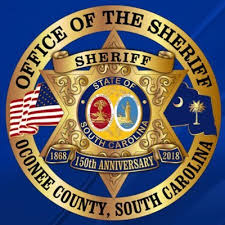Oconee County Sheriff’s Office Releases June 2023 Scams Update

From the Oconee County Sheriff’s Office:
(UPDATE: In a follow-up, the Oconee County Sheriff’s Office did speak to a victim who was scammed out of some money in regard to the law enforcement scam we reported.)
(Walhalla, SC) ————————————–In our continuing efforts to educate and inform our citizens, and to prevent them from becoming victims of a scam, the Oconee County Sheriff’s Office is releasing today our June 2023 Scams Update.
The Oconee County Sheriff’s Office was notified by some of our citizens today of a scam in which they received a call from someone claiming to be Sgt. Baxter from the Warrants Bureau. The calls centered on the citizens having arrest warrants and the scammer requesting money to have those charges dropped.
As of right now, the Sheriff’s Office has not been notified that anyone has suffered a financial loss or has had any of their personal identifying information or financial account information compromised.
“We have seen this type of law enforcement scam before,” says Master Deputy Jimmy Watt, Public Information Officer of the Sheriff’s Office. “Law Enforcement will not contact you and request money in order to have an arrest warrant, or any charges, dropped. If someone has an arrest warrant, then Law Enforcement does have the right to affect a lawful arrest on those charges. Also, we do not have an employee with the name of Sgt. Baxter who works in our Warrants Bureau.”
The Sheriff’s Office received a phone call recently from someone stating that he had received an obscene phone call from the Sheriff’s Office non-emergency number of 864-638-4111.
“Scammers and others can manipulate phone numbers through a process known as “spoofing,” says Master Deputy Watt. “The process allows someone to manipulate phone numbers to make it appear that they are calling from any number, including local numbers. We often see this activity as it relates to scams; however, if you receive a call from any number related to the Oconee County Sheriff’s Office, and it is related to a scam or an obscene phone call, save any information you receive and contact us immediately.”
According to information on the website from the Federal Communications Commission (fcc.gov/spoofing): “Spoofing is when a caller deliberately falsifies the information transmitted to your caller ID display to disguise their identity. Scammers often use neighbor spoofing so it appears that an incoming call is coming from a local number or spoof a number from a company or a government agency that you may already know and trust. If you answer, they use scam scripts to try to steal your money or valuable personal information, which can be used in fraudulent activity.”
A citizen received a check in the mail from what appeared to be an insurance company. The check was for the amount of $7,000.00 dollars. The citizen was instructed to deposit the check and then asked to call a number once the check had been deposited.
The check was sent in order to cover payment towards taxes and processing fees for the Publishers Clearing House Sweepstakes, which the letter stated was required by the International Sweepstakes and IRS. The grand prize winnings listed in the letter, for the sweepstakes, was for $750,000.00 dollars.
The letter stated that the citizen’s entry into the sweepstakes was due to cross-promotion by marketing companies through credit card expenditures, past subscriptions and in-store and grocery store rebates in North America. The letter stated that a payment had to be processed within three business days. The letter also stated that the sweepstake winnings could only be held for 3-5 days. Also, the receiver of the letter was notified to keep the award letter strictly confidential until the cash prize could be processed in order to avoid double or false claims, identity theft and impersonation. Also, they asked the winner to notify them if they wanted their prize van to deliver their winnings with a camera crew in order to advertise them on TV and local newspapers as well.
“As we have stated previously, Publishers Clearing House is a legitimate sweepstakes,” says Master Deputy Watt. “However, in order to win money, or prizes from a sweepstakes, you have to enter the sweepstakes yourself. Scammers like to create a sense of urgency, but they can also entice someone with large amounts of money and prizes. If someone pays money for fees and taxes to someone in this scam, the scammers will take your money, but you will not receive any money or prizes yourself.”
